Description
Synflex 550mg Tablets contain naproxen sodium, a nonsteroidal anti-inflammatory drug (NSAID) used in Pakistan to relieve pain and inflammation from conditions like rheumatoid arthritis, osteoarthritis, and acute gout. It reduces joint stiffness and discomfort, common among manual laborers in rural Sindh or office workers in urban Islamabad facing chronic pain. Produced by brands like Martin Dow, it’s available in strips of 10-20 tablets, priced around Rs. 150-200 per strip, prescription-only, and distributed through DRAP-registered pharmacies.
How It Functions
Naproxen sodium inhibits cyclooxygenase (COX-1 and COX-2) enzymes, reducing prostaglandin synthesis, which drives pain and inflammation. Chemically, it’s sodium (S)-6-methoxy-α-methyl-2-naphthaleneacetate. It provides analgesia within 1 hour, with anti-inflammatory effects building over days, lasting 8-12 hours per dose due to its long half-life of 12-17 hours.
Dosage Information
Adults: Typically 550mg (one tablet) twice daily, morning and evening, with food or milk to reduce stomach irritation; max 1100mg/day for arthritis or pain. For acute gout, 825mg initially, then 275-550mg every 8 hours until resolved. Children (over 5 years, juvenile arthritis): 10mg/kg/day in 2 doses. Swallow whole with water; do not crush or chew. Use lowest effective dose for shortest duration (e.g., 5-10 days for acute pain). Consult physician for adjustments in kidney/liver issues or elderly patients.
Side Effects
- Very Common (>1 in 10): Gastrointestinal upset (abdominal pain, nausea, heartburn), headache.
- Common (up to 1 in 10): Dizziness, tinnitus (ringing in ears), vertigo, fluid retention, hypertension, dyspnea (breathing difficulty), skin rash, itching.
- Rare: Gastrointestinal bleeding/ulceration, visual disturbances, impaired hearing, heart failure, hypersensitivity reactions (e.g., anaphylaxis).
Drug Interactions
Naproxen may interact with:
- Other NSAIDs or aspirin: Increases bleeding/ulcer risk.
- Diuretics, ACE inhibitors, ARBs: Reduces kidney function or blood pressure control.
- Anticoagulants (e.g., warfarin): Enhances bleeding risk.
- Steroids: Heightens gastrointestinal complications.
- Lithium, methotrexate: Increases toxicity levels.
- SSRIs: Raises bleeding risk.
Indications
Approved for treating:
- Rheumatoid arthritis.
- Osteoarthritis.
- Ankylosing spondylitis.
- Musculoskeletal disorders.
- Acute gout.
- Dysmenorrhea (menstrual cramps).
- Migraine.
- Post-operative pain.
When Not to Use
Avoid in:
- Hypersensitivity to naproxen, aspirin, or other NSAIDs.
- Active gastric/duodenal ulcers or gastrointestinal bleeding.
- Severe heart failure, liver, or kidney impairment (creatinine clearance <20ml/min).
- Bleeding disorders or hemorrhage.
- Third trimester pregnancy.
- Children under 5 (juvenile arthritis) or under 16 (other indications).
Precautions
- Rule out malignancy in gastric symptoms before starting; monitor during therapy.
- Use cautiously in elderly, asthma, heart, kidney, liver, or vascular disease patients.
- Monitor blood pressure, kidney function, and for bleeding signs, especially in long-term use.
- Take with food to reduce stomach upset; avoid lying down for 15-20 minutes after.
- Limit alcohol; increases gastrointestinal risks.
- Buy from DRAP-registered pharmacies; check holograms to avoid counterfeits.
Warnings
- Cardiovascular risk: May increase heart attack or stroke risk, especially with prolonged use or in heart patients.
- Gastrointestinal bleeding: Can be fatal; stop if blood in stool or severe pain occurs.
- Kidney damage: Monitor urine output and function, especially in hot climates or fasting.
- Pregnancy: Contraindicated in third trimester; avoid in earlier stages unless essential.
- Overdose: Nausea, vomiting, drowsiness require urgent care.
Additional Notes
- Pregnancy Category: Consult physician; category C early, D in third trimester due to fetal risks.
- Breastfeeding: Avoid; passes into milk, may harm infant.
- Availability: Common in urban and rural pharmacies; generics like Anaprox available.
- Stability: Stable at room temperature; discard expired tablets.
- Reporting: Log batch for side effects; report to DRAP for quality control.
Doctor Review
Dr. Asim Raza, a rheumatologist in Karachi, notes Synflex’s efficacy for arthritis pain and gout flares, popular among Pakistan’s aging population. DRAP data supports its anti-inflammatory action, but Dr. Raza stresses short-term use and monitoring for stomach bleeding, especially in spicy-diet regions.
Disclaimer
This is general product information, not a prescription or medical advice. Consult your doctor or pharmacist for personal guidance.

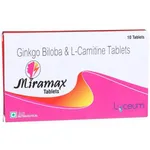

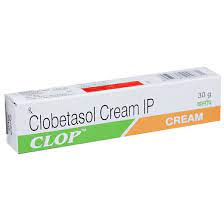
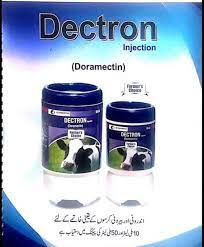
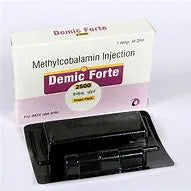
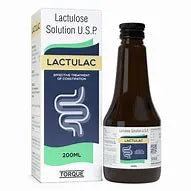
Reviews
There are no reviews yet.